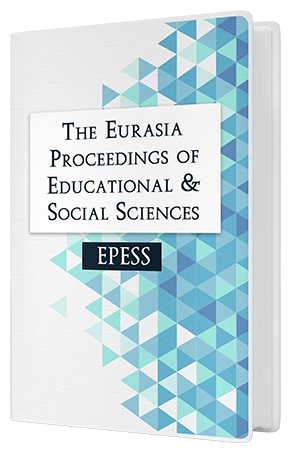PRESERVICE MIDDLE SCHOOL MATHEMATICS TEACHERS’ KNOWLEDGE ABOUT STUDENTS’ MATHEMATICAL THINKING RELATED TO PERIMETER AND AREA
Keywords:
Knowledge of students’ thinking, preservice teachers, perimeter and areaAbstract
The purpose of the current study is to examine preservice middle school mathematics teachers’ knowledge about students’ mathematical thinking related to perimeter and area and determine the consistency between this knowledge and students’ actual mathematical thinking. Case study, one of the qualitative research designs, was used to gain an in-depth understanding of the situation. The study was conducted with four senior preservice middle school mathematics teachers who enrolled in the program of elementary mathematics education at a public university. The data obtained through video recordings from the process of planning, teaching and reflecting on two lessons towards perimeter and area. The videos from teaching were used to identify students’ mathematical thinking, difficulties, mistakes and misconceptions whereas the videos from planning and reflecting were used to describe preservice teachers’ knowledge of students’ mathematical thinking. The data were analyzed through content analysis method. The findings showed that students had lack of knowledge about the meanings of the concepts of perimeter and area, made mistakes related to calculation and use of measurement units. In addition to this, preservice teachers’ predictions and expectations about students’ mathematical thinking were very limited. Finally, it was observed that there were important differences between students’ thinking ways, difficulties, misconceptions and possible mistakes and preservice teachers’ expectations and predictions about these issues.Downloads
Published
Issue
Section
License
Copyright (c) 2017 The Eurasia Proceedings of Educational and Social Sciences

This work is licensed under a Creative Commons Attribution-NonCommercial-ShareAlike 4.0 International License.
The articles may be used for research, teaching, and private study purposes. Any substantial or systematic reproduction, redistribution, reselling, loan, sub-licensing, systematic supply, or distribution in any form to anyone is expressly forbidden. Authors alone are responsible for the contents of their articles. The journal owns the copyright of the articles. The publisher shall not be liable for any loss, actions, claims, proceedings, demand, or costs or damages whatsoever or howsoever caused arising directly or indirectly in connection with or arising out of the use of the research material. All authors are requested to disclose any actual or potential conflict of interest including any financial, personal or other relationships with other people or organizations regarding the submitted work.




